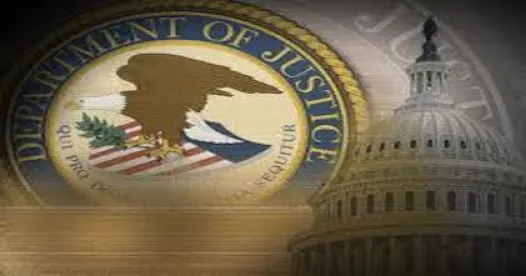Last month, Polsinelli highlighted a recent update to the Department of Justice (DOJ) Evaluation of Corporate Compliance Programs, which detailed how DOJ will evaluate the effectiveness of corporate compliance programs in the context of charging decisions and plea agreements. On May 6, 2019, DOJ implemented a new policy in civil cases brought under the False Claims Act (FCA). The new guidelines, incorporated as section 4-4.112 of the Justice Manual, formally establish policies regarding how defendants can earn credit in FCA matters.
The new policy incentivizes companies to (1) voluntarily disclose FCA violations, (2) cooperate with investigators, and (3) implement meaningful and effective remediation measures. Indeed, these broad areas of emphasis are not new and the factors draw on prior DOJ initiatives to reward cooperation. Nevertheless, the new policy is significant. Companies can now rely on a formal Justice Manual policy that should offer more detailed and reliable guidance. The new policy details the considerations that DOJ attorneys should weigh in determining settlements, which could reduce settlements to single damages in a case that would otherwise result in treble damages. In fact, and equally significant, the new policy encourages DOJ attorneys to take into account the prior existence of compliance programs in determining FCA liability.
Regarding voluntary disclosure, DOJ makes clear: “Entities or individuals that make proactive, timely, and voluntary self-disclosure to the Department about misconduct will receive credit during the resolution of a FCA case.” And, internal investigations that discover misconduct beyond the scope of the known concerns will qualify the company or individuals for additional credit.
Regarding cooperation, the new policy emphasizes efforts that extend beyond voluntary self-disclosure and sets forth a non-exclusive list of factors, including (1) identifying individuals substantially involved or responsible; (2) disclosing relevant facts and identifying opportunities for the government to obtain evidence possessed by third parties; (3) preserving documents through policies or directives beyond existing business or legal requirements; (4) identifying individuals who are aware of relevant information; (5) making officers and employees with relevant information available to the government; (6) disclosing facts gathered during an independent investigation that includes specific source citations versus general narratives; (7) providing information in native format; (8) admitting liability; (9) providing facts relevant to potential misconduct by third parties; and (10) assisting in the determination or recovery of losses caused by the misconduct.
And like voluntary cooperation, regarding consideration of remedial measures, the new policy does not include a comprehensive list of circumstances that warrant credit. Nonetheless, the new policy sets forth several examples that could qualify, including (1) a thorough analysis of the cause of the underlying conduct and remediation to address the root cause; (2) appropriate disciplining or replacing culpable individuals; (3) implementing “any additional steps” that show a recognition of the seriousness of the entity’s misconduct and acceptance of responsibility to mitigate potential recidivism, and (4), perhaps most important implementing or improving an effective compliance program to prevent future similar conduct. Specifically, DOJ may consider “the nature and effectiveness” of a compliance program in evaluating whether any violation was committed “knowingly” (an element of FCA liability). The new policy states that criteria for evaluating the effectiveness of a pre-existing compliance program may include those set forth in Justice Manual § 9-28.800.
Concerns regarding disclosure remain. Companies must often consider that disclosure could result in additional litigation exposure, not to mention the disclosure could serve as additional ammunition for the government as the civil (and possibly criminal) investigation(s) evolve. Further, most often a sealed qui tam complaint already exists, which would negate any disclosure. Nevertheless, the adoption of a formal policy for cooperation credit suggests a willingness to fully apply the sought credits and ultimately encourage fulsome disclosure.



 />i
/>i
